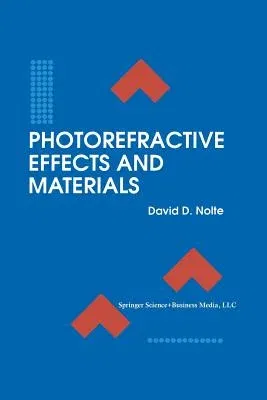The photorefractive effect is now firmly established as one of the
highest-sensitivity nonlinear optical effects, making it an attractive
choice for use in many optical holographic processing applications. As
with all technologies based on advanced materials, the rate of progress
in the development of photorefractive applications has been principally
limited by the rate at which breakthroughs in materials science have
supplied better photorefractive materials. The last ten years have seen
an upsurge of interest in photorefractive applications because of
several advances in the synthesis and growth of new and sensitive
materials. This book is a collection of many of the most important
recent developments in photorefractive effects and materials. The
introductory chapter, which provides the necessary tools for
understanding a wide variety of photorefractive phenomena, is followed
by seven contributed chapters that offer views of the state-of-the-art
in several different material systems. The second chapter represents the
most detailed study to date on the growth and photorefractive
performance of BaTi03, one of the most important photorefractive
ferroelectrlcs. The third chapter describes the process of permanently
fixing holographic gratings in ferroelectrics, important for volumetric
data storage with ultra-high data densities. The fourth chapter
describes the discovery and theory of photorefractive spatial solitons.
Photorefractive polymers are an exciting new class of photo refractive
materials, described in the fifth chapter. Polymers have many
advantages, primarily related to fabrication, that could promise a
breakthrough to the marketplace because of ease and low-cost of
manufacturing.


